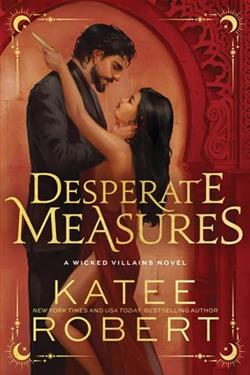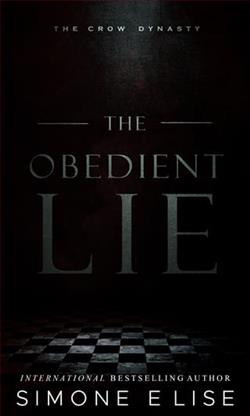Page 65 of A Resistance of Witches
“That’s Papa Legba sending you a message,” Fabienne would reply. “When the dead tell you things, best you listen.”
Henry trusted his mother and tried to heed her advice. But it was hard, at seven, to know the difference between a spirit who wasdelivering an important message and one who only wanted to make trouble for him. For years he fought to keep some sort of boundary between himself and the dead, but it was no use. The more he tried, the more enraged they became. They laughed at his childish demands that they leave him be. They screamed obscenities in his face—at home, on the street, sometimes at school. For a while, he stopped talking altogether, thinking that maybe they would grow bored of his silence, but they only grew more insistent. Some would become violent, pawing at him, trying to get inside him, as if curling up against his warm, soft insides would make them feel alive again. One spirit would linger on the street near his home, leering and exposing himself, muttering things as Henry walked by that made him feel queasy.
Some were quieter than others. The spirits that lingered by the cemeteries were always strangely subdued, standing among the raised tombs in the summer heat, dazed and silent. The ones at Dryades Street Library pored over the books or sat hunched at the tables, mute and sullen.
“Quiet places make quiet spirits,” Fabienne told him.
Fabienne’s house was never quiet. It was teeming with life, and food, and music, and laughter. The dead were drawn to it like a magnet, and Fabienne welcomed them with open arms, inviting them inside her home, her body. But always, with Fabienne, they remembered who was really in charge.
“You can’t let them walk all over you,” she would say. “This is your house. You’re the boss. Tell them.”
Henry didn’t want to tell them. He wanted them to leave him alone. He began escaping his mother’s house as often as he could, eager to avoid the lively spirits that flocked to her like moths to a flame. He stopped going to the dances and ceremonies, even when missing them filled him with a sense of loss akin to amputating a limb. He stopped leaving gifts for Papa Legba.
By the time he was ten, Henry was spending endless hours in the library, making friends with the librarians and devouring books indiscriminately to pass the time. It was there that he fell in love with art and history, with language, with architecture. He dreamed of enveloping himself in the cavernous quiet of Notre-Dame, the Louvre, Mahabodhi Temple, the lost city of Petra, Angkor Wat, places where even the most riotous spirits would feel compelled to silence. Soon he was writing to his father’s sister in Paris, begging her to intercede with Fabienne, to let him come and live with her.
“You think they don’t have ghosts in France?” Fabienne asked, one hand on her hip. But then she saw the haunted look in her son’s face, and her resolve softened.
She let him go.
They did have ghosts in France. Plenty of them, following him through the streets of Montmartre, leering at him in the markets and at the cafés—but relief was never more than a few steps away. Cathedrals abounded in Paris. Museums became a safe haven for him, the dead so docile they almost blended in among the tourists and the students. With space to breathe, Henry could finally put his mind to the work of building the boundaries Fabienne had told him about. He set about closing every door inside his mind and dedicated a sliver of himself to always stand guard, night and day, keeping them closed, and the dead at bay. Sometimes they still managed to slip through, but most days, the only dead Henry encountered were the faces of the paintings and statues he studied. Hundreds of them, staring out at him with flat eyes from across the centuries. Lifeless and silent.
•••
Later that evening,Madame Boucher appeared in the barn carrying a bowl of watery soup and a heel of crusty bread. She was a smallwoman, hard around the edges, with a severe mouth and a head of fair hair, gone prematurely gray.
“I can bring more blankets,” she offered. “I know you must be cold.”
“I’m fine,” Henry said. “I can’t thank you enough for your hospitality.”
“We do what we can.” There was a defiant jut of the chin as she said it, an unexpected spark behind the eyes.
But Henry knew that every second he stayed, he was putting this family in danger. “I won’t overstay my welcome.”
“Stay as long as you need,” she said lightly. “Bonne soirée.”
“Bonne soirée, madame.”
There was a lantern in the barn, but Henry dared not light it, and so he ate his meal in the dark. Steam poured off the bowl, condensing in the frozen air, and the soup was stone cold by the time he finished. Still, he was grateful for the food, and the shelter, and most of all, for the danger the Bouchers were putting themselves in to hide him. If he survived, he would need to find a way to repay them.
He lay in the dark, terror and loneliness swirling inside him. René was dead, and the loss of him stuck like shrapnel in Henry’s chest, so painful he could hardly breathe. Rebecca had almost certainly been killed or captured. And Lydia had been spirited away back to England, gray and lifeless.
Lydia.
He should have kissed her that night. He should have pulled her into his arms and held her there until sunrise, then sent her and theGrimorium Bellumhome to London, where they would both be safe. He’d wanted to—God, he had wanted to. Not just because she was beautiful, although she was. It was that he had been inside her mind, and what he’d felt there had been so vibrant and intoxicating, sointimate, he’d barely been able to think of anything else since.
He’d seen the flat where she’d grown up, all tea leaves and tarot cards, a jumbled, upside-down version of his own childhood home. He’d felt her elation the first time she managed to project out of her own skin, the memory so clear he was sure for a moment it must have been his own. He felt the deep well of love inside of her, for Kitty, and Isadora, and Sybil, sweet and green as new spring leaves. The tangled, frustrating, complicated love she felt for her mother, like trying to unknot a mass of string that refuses to be anything other than a mess. He felt how desperately she wanted to be perfect, the impossible standards, the self-recriminations. He felt her stubbornness, her bravery, her unyielding, uncompromising nature, and he wanted more of it, in his lungs, in his bloodstream. He wanted her.
But sitting there in his bedroom, with his heart pulsing in his fingertips, their lips inches apart, Henry had felt something slip through his defenses. He had let his guard down, and the piece of himself that had always stood sentinel over those damned doors had stepped away from its post, wanting to be there too. Wanting to be with her. And one of those doors had opened, just a crack.
The spirit had been harmless. Just a confused old woman with skin like paper, wondering what they were doing in her house. But her appearance had unnerved Henry so completely that there had been no recovering. The moment had been lost. And now Lydia was gone.
Henry sat up, blinking in the dark. He remembered how Lydia had projected out of her body, that first night at the château. If he called to her, could she leave her body again, and come and find him? He didn’t think it really worked that way, but he felt compelled to try.
“Lydia?” He listened and waited. Somewhere outside, something small was scooped up by a larger animal and carried off, screaming into the night.
Another thought occurred to him then. Maybe Lydia hadn’t survived. Maybe she really had died that morning on the floor of Châteaude Laurier, and he was calling out to a ghost. The thought was almost too terrible to consider, and yet he couldn’t let it go. He sat in silence for a long time, imagining the worst, until he couldn’t stand it for another second.
Henry closed his eyes and pictured a single door inside his mind. He felt a rush of cold air as it opened, prickling his skin.















